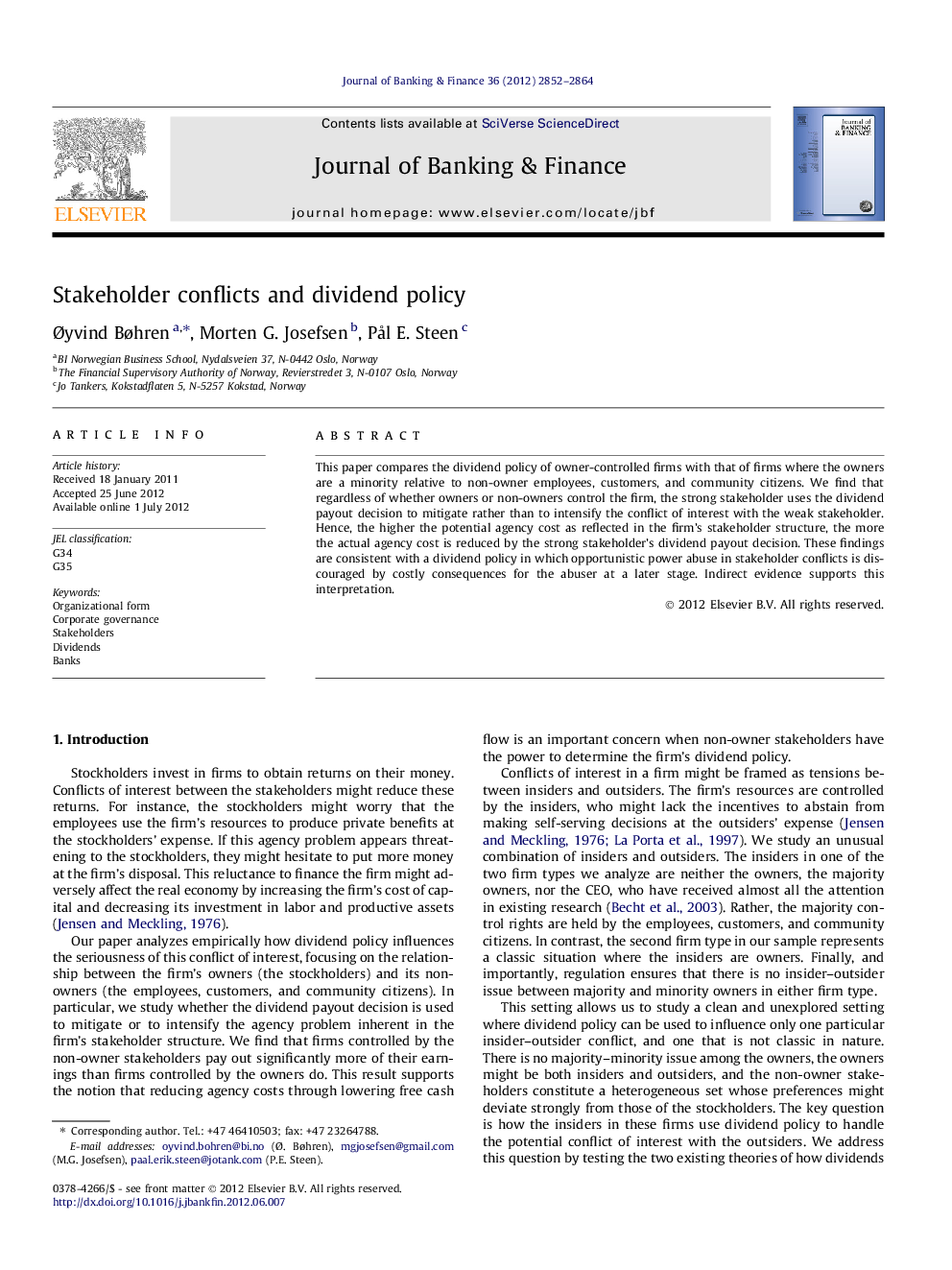| Article ID | Journal | Published Year | Pages | File Type |
|---|---|---|---|---|
| 5089644 | Journal of Banking & Finance | 2012 | 13 Pages |
This paper compares the dividend policy of owner-controlled firms with that of firms where the owners are a minority relative to non-owner employees, customers, and community citizens. We find that regardless of whether owners or non-owners control the firm, the strong stakeholder uses the dividend payout decision to mitigate rather than to intensify the conflict of interest with the weak stakeholder. Hence, the higher the potential agency cost as reflected in the firm's stakeholder structure, the more the actual agency cost is reduced by the strong stakeholder's dividend payout decision. These findings are consistent with a dividend policy in which opportunistic power abuse in stakeholder conflicts is discouraged by costly consequences for the abuser at a later stage. Indirect evidence supports this interpretation.
⺠Strong stakeholders use dividends to reduce conflicts with weak stakeholders. ⺠Firms controlled by non-owners pay higher dividends than firms controlled by owners. ⺠Opportunistic dividend policy now is discouraged by a need for new equity later.
